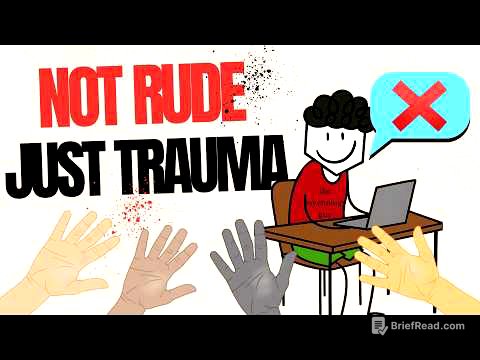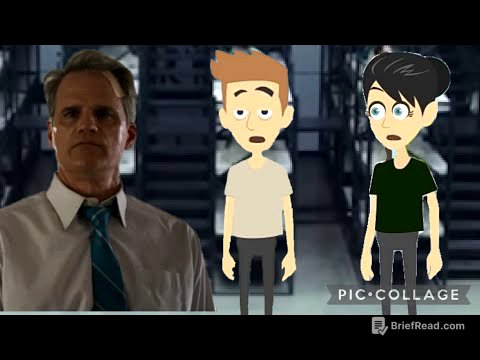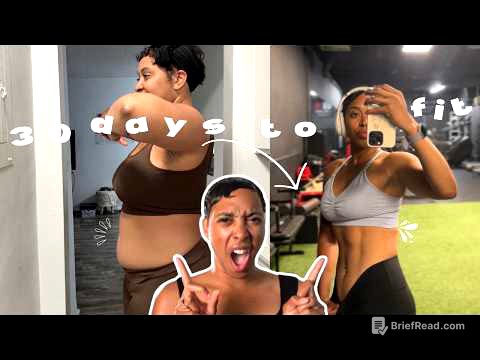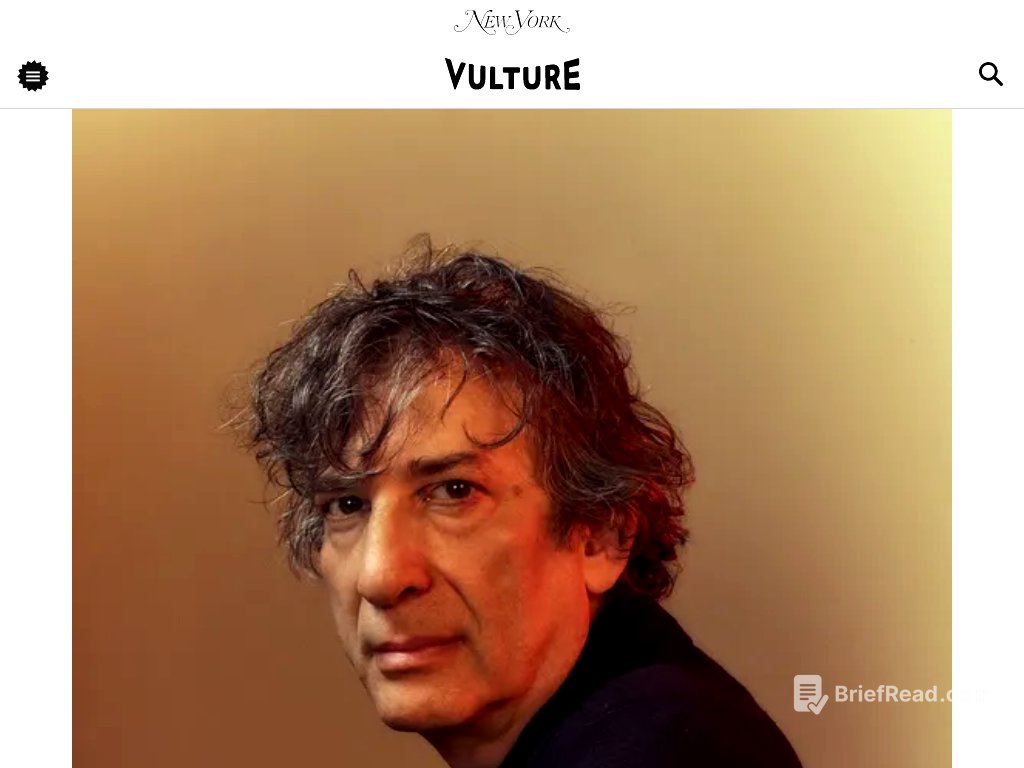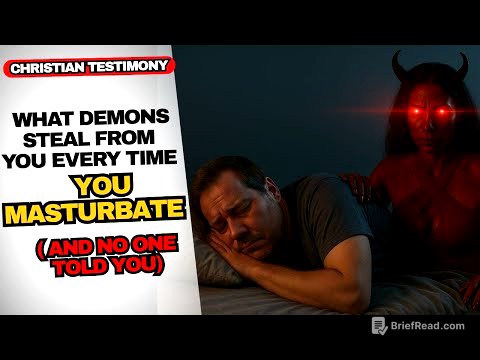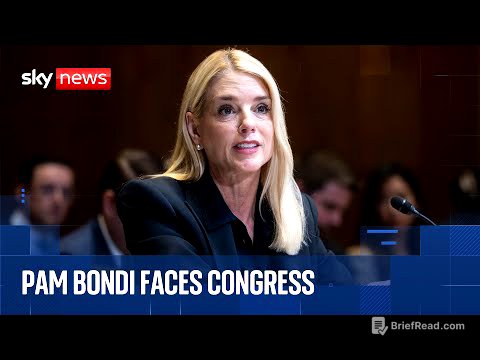TLDR;
Douglas Murray hosts a discussion on the perceived "war on the West," exploring attacks on Western values, history, and culture. The discussion covers the origins and spread of ideologies like cultural Marxism and critical race theory, their impact on education and public perception, and potential solutions. Key points include:
- The distortion of history and the focus on Western sins while ignoring those of other cultures.
- The role of media in shaping perceptions of racial bias and crime.
- The importance of gratitude and truth-telling in countering negative narratives.
- The need for school choice and parental involvement in education.
Introduction: The War on the West [0:00]
Douglas Murray introduces the concept of a "war on the West," which he defines as an attack on the foundations and traditions of Western civilisation. He argues that this war involves a massive lie of omission regarding world history, where the sins and crimes of the West are highlighted while those of other cultures are ignored. This includes the history of slavery in the Arab world, China, and Korea. Murray contends that Western peoples are being relentlessly attacked for sins they have no connection to, and that there's a frenzied narrative of ubiquitous racism that distracts from other critical issues.
The Origins and Spread of Anti-Western Ideologies [2:35]
Max Eden suggests that the roots of this "war on the West" can be traced back to cultural Marxism, which he describes as a modern interpretation of an old desire to define good and evil for others. He and Heather McDonald discuss how these ideas have infiltrated the American schooling system through teachers' unions and teacher education programmes, which have become transmission belts of anti-American victimology. Teachers are often ill-equipped in core subjects but well-versed in racial victimology, leading to an alternative narrative about the United States as a fundamentally white supremacist nation.
Critical Race Theory and the Rejection of Western Values [6:05]
Coleman Hughes explains that Critical Race Theory (CRT) originated among legal scholars dissatisfied with the civil rights movement's rhetoric. CRT proponents reject values such as individualism and meritocracy, viewing them as white supremacist values designed to maintain white dominance. This ideology aims to reform society's morality by associating traditionally good values with whiteness, which is then deemed bad, thus discrediting the entire value system. This is often implemented through concepts like cultural competence and culturally responsive education, which are presented as alternatives to colourblindness.
Misperceptions and Media Influence [8:51]
Heather McDonald highlights the misperception of America as it exists today, particularly regarding policing. Polls show that people vastly overestimate the number of unarmed black Americans shot by police each year. She argues that the media's disproportionate coverage of police shootings involving black individuals creates a skewed perception. While any civilian shootings are undesirable, the media neglects to cover the high rates of black-on-black homicides, which far exceed the number of blacks killed by police. This focus on a narrative of ubiquitous racism distracts from addressing the breakdown in inner cities.
Iconoclasm and the Erasure of History [12:28]
Douglas Murray discusses the outburst of iconoclasm in America following the killing of George Floyd, with statues being torn down. He notes that while the removal of Confederate statues was somewhat understandable, the attacks quickly extended to figures like Christopher Columbus and even Abraham Lincoln. The panel argues that there is a lie of omission about world history, with children being taught about the horrors of American slavery but remaining ignorant of slavery in other parts of the world, such as the Arab world, China, and the Aztec empire.
The Attack on Western Heroes and Intellectuals [16:47]
The discussion shifts to the attacks on foundational heroes and intellectuals of the West, such as Winston Churchill, Abraham Lincoln, and Aristotle. The panel notes that figures are discredited simply by associating them with the adjective "white." Max Eden points out the hypocrisy in attacking dead white males while giving a pass to Karl Marx, whose problematic statements are often ignored. The panel laments the desire to destroy Western civilisation, driven by a hatred for a civilisation deemed too white and too male.
The Pervasiveness of Anti-Western Ideology [24:14]
The panel discusses how anti-Western ideology has permeated nearly every aspect of life, from literature and music to the visual arts. Heather McDonald notes that even classical music is under attack because its canon was mainly written by dead white males. She argues that this is an untried experiment in human history, where children are given nothing to be proud of. McDonald criticises the idea that symphony orchestras must be 13% black, dismissing the notion that blind auditions are somehow racist.
Addressing Real Problems vs. Non-Problems [26:58]
McDonald argues that society is shying away from addressing real cultural pathologies, such as the high rates of black children being gunned down in inner cities. She contends that focusing on non-problems, such as the composition of the New York Philharmonic's trombone section, does nothing to save these children. Eden adds that there is a need to cultivate gratitude rather than relentless critique, as gratitude acknowledges something greater than oneself.
Reparations and Real Solutions [30:05]
The panel discusses potential solutions to the problems they have identified. Douglas Murray raises the idea of reparations, which was seriously considered by Democratic presidential contenders in 2020. McDonald argues that reparations are a distraction from real solutions, which involve changing beliefs, values, and habits in the community, such as parenting styles and family structures. She points out that no group has ever risen from poverty to affluence by demanding reparations.
Gratitude, Courage, and Truth-Telling [34:43]
The discussion turns to how to cultivate an attitude of gratitude towards the West and how to practically implement change. Eden suggests that parents need to recognise the systemic capture of public school institutions and be given the resources to pursue a good education for their children through school choice. Hughes emphasises the importance of modelling courage and having good conversations, starting with one's own life. McDonald urges people to speak the truth, not be afraid of being called a racist, and not accept that "white" is an epithet. She stresses the need to be more honest about the reasons for racial disparities in the country.

